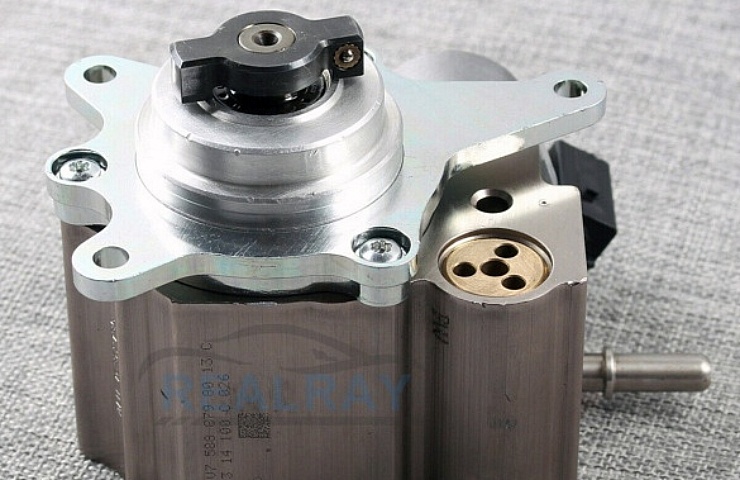Contents
A car’s fuel pump plays an essential role: It gets the fuel from the tank to the engine. These pumps are the heart of a running vehicle. As such, they need proper care. Most modern cars use fuel injectors that also must be kept clean of sludge and dirt.
Shop now for fuel additives and treatmentsFuel Pumps Are Essential
Fuel pumps in older vehicles were mechanical devices that hung on the side of the engine block and relied on a lever to pump fuel into the engine. They worked similar to an old-fashioned hand-driven water pump. Unfortunately, the pressure of the fuel lines served by these pumps was often inconsistent.
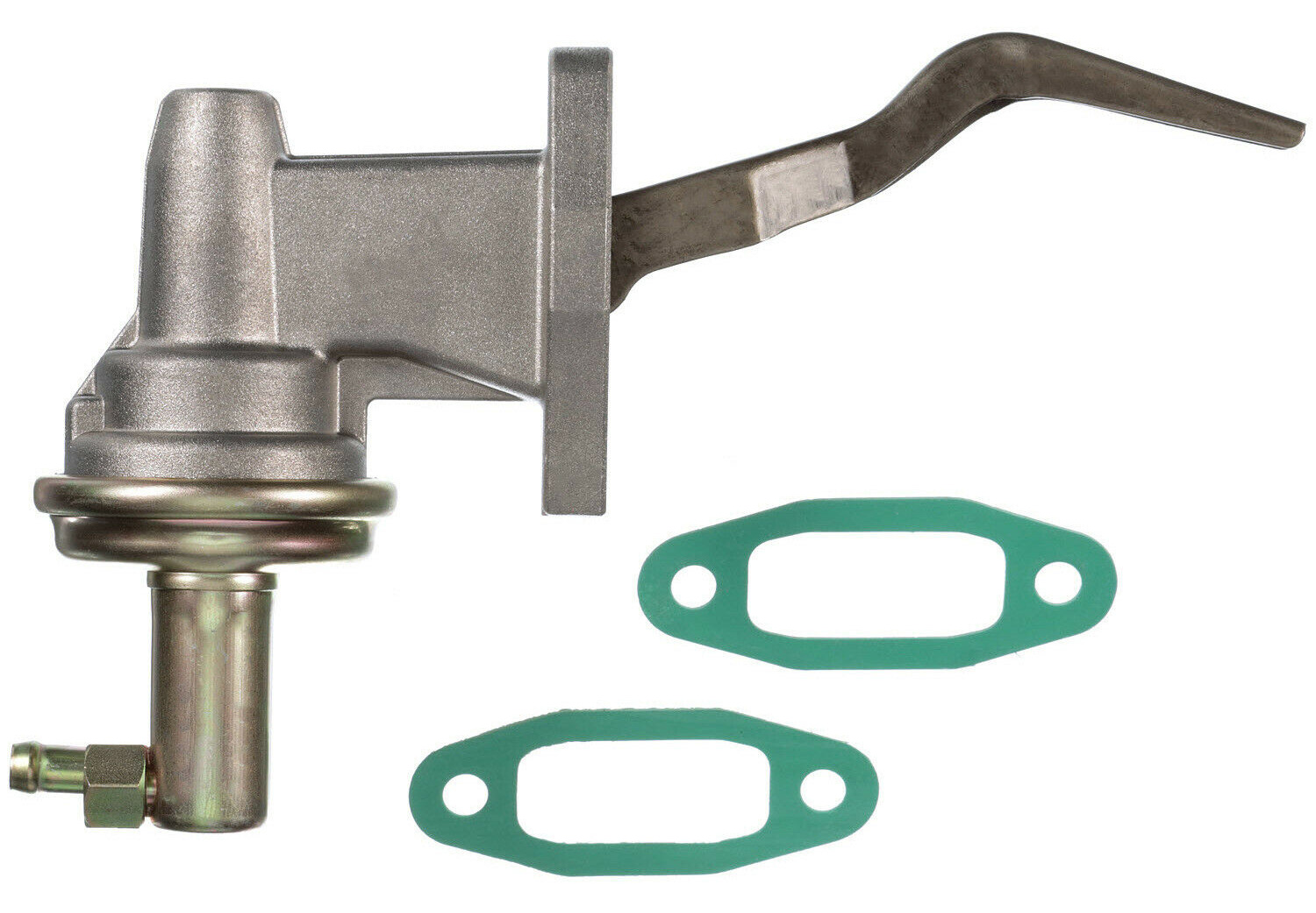
Older cars have a mechanical fuel pump that pulls fuel into the carburetor.
The technology advanced when manufacturers switched to fuel injection systems. These systems use fuel pumps to control the precise amount of fuel sent to each fuel injector. Controlling the fuel and injectors via a computer allows for more precise combustion. As a result, you get better mileage, and there are fewer emissions.
Most electronic fuel pumps, which are part of the fuel tank, are challenging to replace. That’s why caring for your fuel pump is so critical.
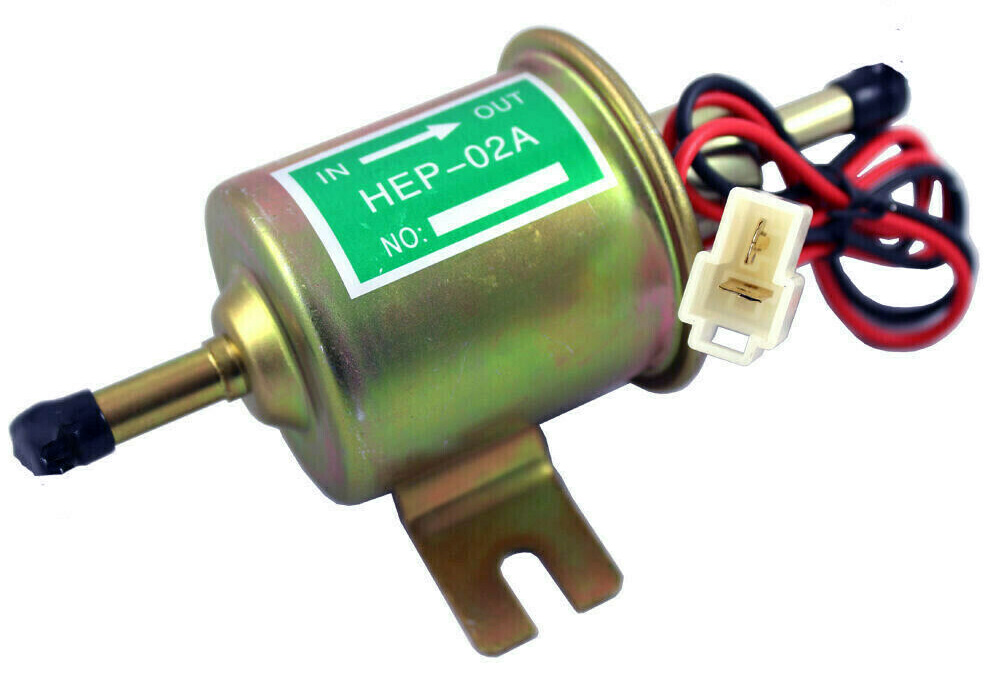
An electric fuel pump with an in-line unit
Older cars can convert to an in-line electronic fuel pump placed near the existing fuel tank. This type of pump is relatively easy to replace.
Why Fuel Pumps Fail
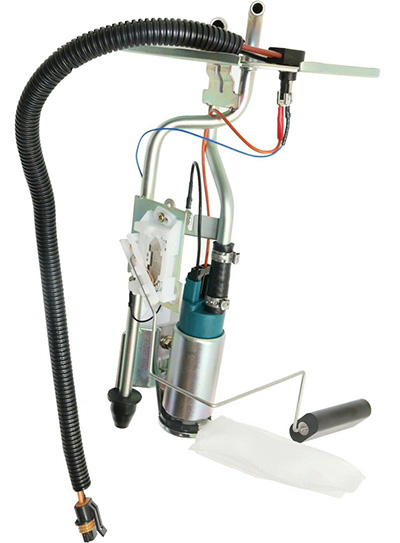
Modern vehicles place the fuel pump in the gas tank. That helps keep the system cool.
In-tank fuel pumps rely on a flow of fuel to keep the system cool. If your gas tank falls to nearly empty, the fuel pump operates at higher temperatures. And that’s when the pump or seals can fail from excessive heat. So it’s recommended to keep fuel filled to at least an eighth of a tank.
Another cause for fuel pump failure is grit and debris getting into the pump and clogging it. Most cars have a replaceable fuel filter that you should change at least every two years. DIY car maintainers should do everything possible to keep your gas tank clean, especially after replacing a fuel pump.
How does dirt get into the gas tank and fuel lines? Most gas pumps try to trap contaminants. But if gas stations don’t change filters often enough, debris can enter your tank. When tankers deliver new fuel to a gas station, it often stirs up contaminants. Expert tip: don’t gas up when a fuel tanker is delivering fuel.
Stale gas sitting in your tank can degrade over time, allowing contaminants to mess up fuel lines. Gas stabilizers slow down that process and reduce debris from entering your fuel system.
Fuel System Cleaners vs. Fuel Injector Cleaners
Most name-brand gas suppliers include detergents to help keep their fuel systems clean. But many drivers don’t only rely on a supply of clean fuel. Instead, they also use additives to make sure the fuel in the tank and system is clean.
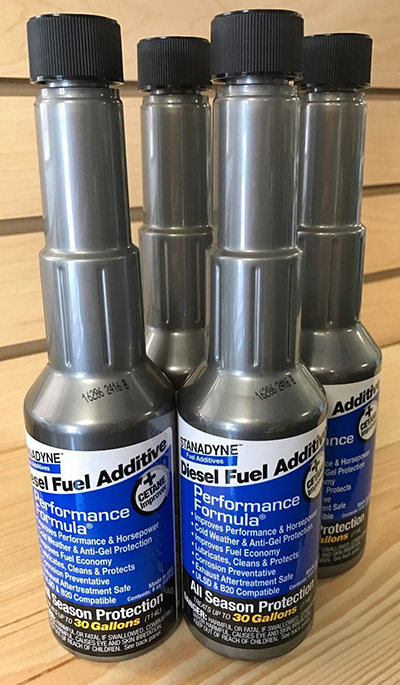
Caption for performance additive? And its for diesel. Does diesel need special treatment?
You can add a fuel system cleaner to your gas tank when filling up. This will clean the fuel in the entire system. If your car is idle for long periods, consider using a fuel system cleaner. Using one bottle per tank—every three months—is a good rule of thumb.
Many repair shops also offer to clean your fuel injectors. This may involve removing the injectors and running a cleaner through them. Removing the injectors takes time and money, but it gives the mechanic a glance at the condition of the injectors. In a glance, the mechanic can tell if a good spray is coming out of each injector.
A maintenance shortcut is to add the cleaner to the fuel rail leading to the injectors. And another alternative for everyday drivers is to use an additive specifically designed to clean the fuel injectors. They are formulated to remove the carbon deposits and sludge found in injectors. The cleaner is also added to the tank when you fill up.
Some additives are aimed to boost performance or improve fuel efficiency. Results can be mixed. Cars that have not been well maintained are likely to see the most improvement. But these performance improvements are usually temporary.
Smart Care of Your Fuel System
Follow these suggestions to keep your fuel system in tip-top condition and prevent issues from arising:
- Follow your car’s suggested maintenance schedule
- Change the fuel filter in the car at least every two years
- Buy your gas from a station that uses additives to serve clean fuel
- Don’t let your gas tank fall below one-eighth full
- If you have fuel delivery issues, like uneven idling and slow acceleration, use an additive to see if it clears up the problem.

